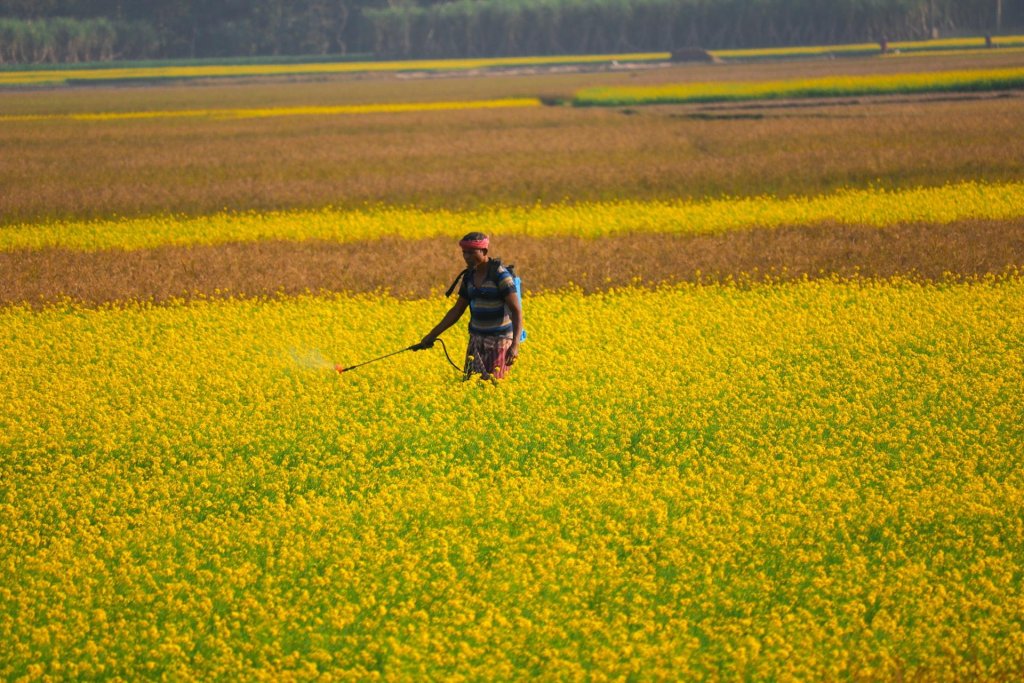Paraquat is a non-selective herbicide used on farms, but its acute toxicity makes it incredibly dangerous to humans. There’s enough evidence to suggest that Paraquat exposure increases your risk of Parkinson’s disease and other alarming health defects, such as learning disorders.
While dozens of countries have decreased its usage or outright banned Paraquat, the US continues to use it despite all warnings. This has led to an increase in injury lawsuits and claims.
An Environmental Health study found that the United States is the only nation out of the 4 largest agricultural producers still using Paraquat. The US could learn a thing or two from other countries that have banned Paraquat and similar types of dangerous farm-based pesticides.
Why Paraquat is Banned in Multiple Countries
Paraquat is one of the most toxic herbicides used by humans. It’s capable of destroying green plant tissue on contact and can kill most animals, including humans, with a single sip. There’s no current antidote for Paraquat, and prolonged exposure can poison humans over time.
Since the late 2000s, numerous studies have found a link between Parkinson’s disease and long-term Paraquat exposure. Farmers who use this chemical have a 200-600% higher risk of developing Parkinson’s, whereas people who live near these farms have a 75% increased risk.
Although Paraquat is proven to increase the risk of Parkinson’s disease, birth defects, learning disorders, and neurological problems, it’s the third most used herbicide in the world.
Individuals can sue if they develop diseases from Paraquat exposure in America, even though the use of it is currently legalized. It’s recommended that farmers avoid the use of Paraquat and to consult their healthcare professional to assess their medical history and symptoms.
Over 30 Countries Ban the Use of Paraquat
Over 30 countries have banned Paraquat and have either switched to eco-friendly pesticides or less toxic herbicides. The European Union, United Kingdom, Kuwait, Brazil, Syria, Ivory Coast, and UAE are among the countries that refuse to use Paraquat on any locally grown crops.
However, that doesn’t mean all of these countries have stopped producing and exporting it. For example, the UK exports thousands of tons of Paraquat to developing countries yearly. As of writing, approximately 120 countries spray Paraquat on over 50 crops, many of which we eat.
Syngenta is the Leading Producer of Paraquat
Although Paraquat is banned in China and Switzerland, they are the leading producers of Paraquat. The Chinese-owned and Swiss-headquartered company Syngenta AG ships nearly 25,000 tons of Paraquat to farming communities in industrialized or developing countries.
Chevron USA is the only US company that has a license to make and sell Paraquat in the US, but it goes under another name. Gramoxone includes 200 g per liter of Paraquat ion but is on the ingredients list as dichloride. This is likely to hide the fact their products contain Paraquat.
Tragically, Paraquat is often used as a way to commit suicide in third-world countries because of its wide availability and low costs. Paraquat poisoning was the cause of 70% of all suicides in Samoa. We know that suicide rates will lower in these countries once Paraquat is banned, as South Korea’s death by pesticide numbers fell by 46% once the chemical was inaccessible.
How Paraquat Affects Humans and Animals
Paraquat enters the body through ingestion, inhalation, and skin absorption. For Paraquat operators to stay safe during its use, they must wear gear that protects their skin, eyes, mouth, and lungs. Unfortunately, many Paraquat operators don’t receive any protections or precautions.
Ingestion is the most dangerous method of exposure. A single teaspoon can kill a person, but it can take several days for the poison to take effect. Death typically occurs from organ failure.
Death through respiratory failure can occur in a few days to a month, but immediate failure is rare, as a person would have to inhale a lot of Paraquat. More than likely, a patient will pass away after long term exposure, which could cause kidney failure and chronic lung damage.
Why It’s Important to File a Paraquat Lawsuit
Filing a Paraquat lawsuit won’t improve your health or prevent further complications, but it can pressure legislators to ban the chemical. The adverse health effects caused by Paraquat aren’t well-known, so it’s important for those who can seek reparations to do so to spread awareness.
Doctors may also not know that your symptoms are caused by Paraquat, as there are multiple reasons why a person develops Parkinson’s disease, lung disease, or learning disabilities.
While protests can help, companies typically only listen once you affect their wallet. A worldwide ban can improve health conditions of millions of people and save the planet from pesticide pollutants. It’s more than worth it to speak to a lawyer and fight against Paraquat manufacturers.

